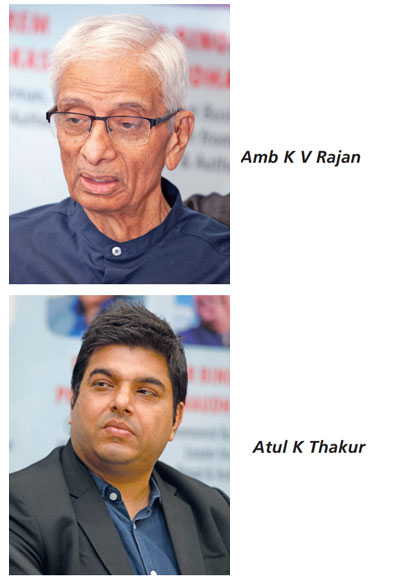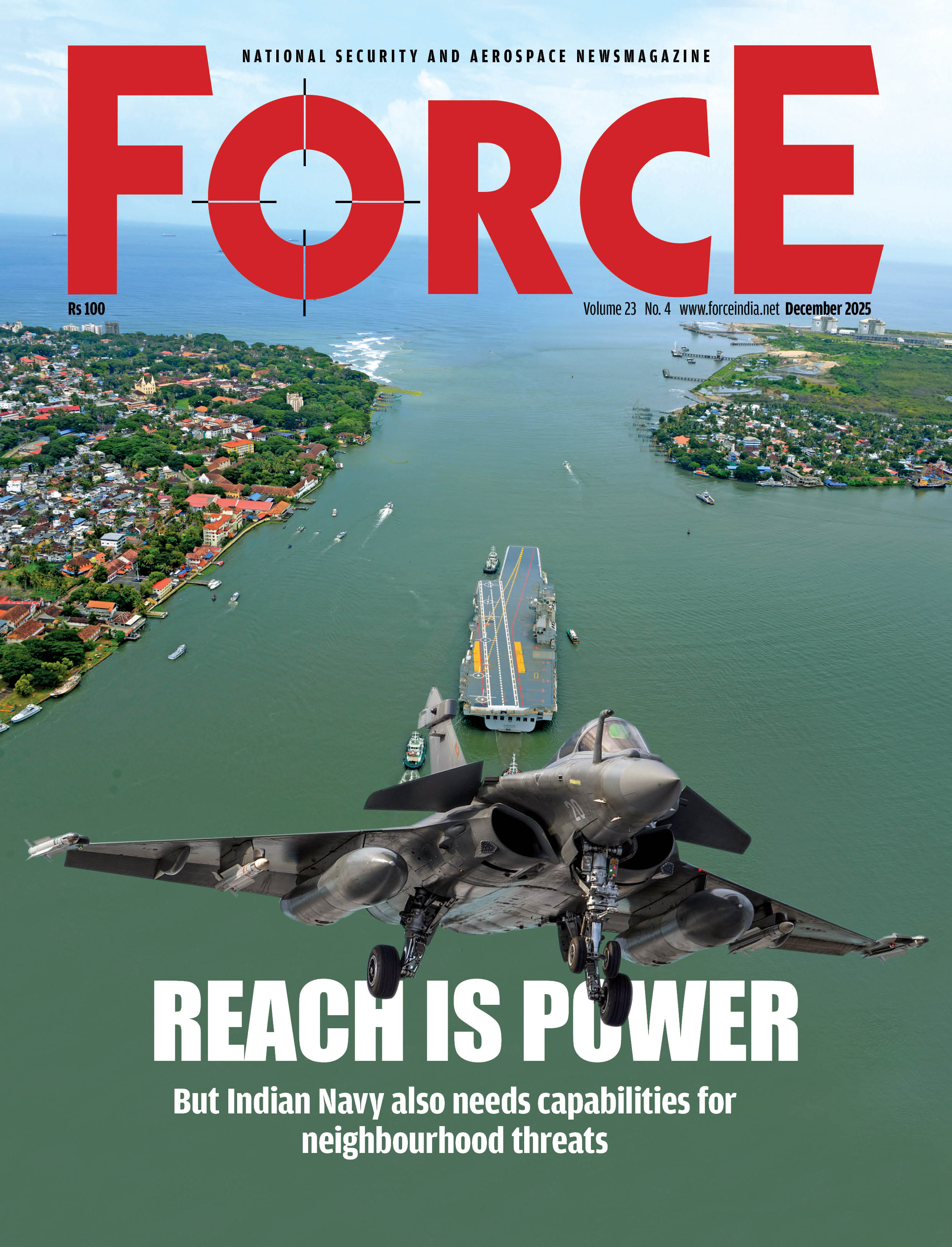Books | Neighbourhood First Needs to be Perceived by Our Neighbours as a Living Day-To-Day Indian Foreign Policy Priority and Not Just a Slogan
Ambassador K.V. Rajan and Atul K Thakur, authors of Kathmandu Chronicle: Reclaiming India-Nepal Relations
 Why has it been so difficult for India to manage relations with Nepal?
Why has it been so difficult for India to manage relations with Nepal?
Both countries need to introspect on why despite their unique civilisational and cultural ties, the relationship has been unable to achieve its real potential. The big country-small country syndrome has much to do with the trust deficit, but it is also true that there have been too many avoidable misunderstandings, and we have not learnt from mistakes of the past. ‘Different strokes’, the differing needs and expectations of either side from the other, would aptly describe one complicating factor.
Nepal expects equality and total respect for its sovereignty. India has nothing but good intentions towards Nepal. In fact, no other country has done so much for Nepal’s democracy and development as India, but its security concerns vis-à-vis China and Pakistan are real and Nepal needs to pay much greater heed to them. There have been too many avoidable misunderstandings, too many problems have been allowed to fester and become irritants, too many unaddressed misperceptions, and too many mixed signals responsible for recurring inconsistencies in policies.
Irritants, potential or real (including long standing ones like the 1950 India-Nepal Treaty of Peace and Friendship) and differences (for example on the border, which appears to be devoid of chances of a political or diplomatic solution given the resolution passed by Nepal’s Parliament), can and should be sorted out in the way hiccups within a family are tackled, keeping the basis as well as continuing need for unshakeable bonds always in mind.
One area of special sensitivity has been Nepalese resentment of alleged Indian involvement in its internal affairs. Indian writers tend to lay a major portion of the blame on sections of the Nepalese elite who indulge in ultra-nationalism for short term gains. We have tried to examine the facts as objectively as possible.
Nepalese say that India has frequently behaved like a big bully, manipulating its politics. What is the basis of these allegations?
This again is a misperception and not fair to India. Nepalese leaders have a tendency to turn to India for advice whenever there is a political crisis, and India has little option but to share its assessments and offer advice in keeping with what it sees as Nepal’s own interests. But it is true that occasionally Delhi has in the past seemed to have been guided by its own biases and preferences in regard to Nepal’s personalities and options. It is much more careful to respect Nepalese sensitivities now and it has been noted and appreciated in Nepal.
It was hoped that Nepal would be a buffer between India and China, but from India’s perspective, it has been susceptible to enticement and pressure from China. Was this hope misplaced? Wouldn’t a small country play two big antagonistic neighbours off each other in furtherance of its own interests?
Nepal has been tempted to play the ‘China card’ ever since India’s independence, exploiting to the full India’s sense of insecurity regarding China. Today, it is China which is proactive in expanding its own footprint, explicitly interfering in Nepal’s internal affairs and also seeking to undermine India’s traditional influence. The strengthening of leftist forces in Nepal’s shaky democracy gives China a window to pursue its strategic ambitions.
One reason for attention is the recent dramatic change in the coalition partners of the incumbent Prime Minister, Maoist leader Pushpa Kamal Dahal—Prachanda, which saw the largest party in Parliament, the centrist Nepali Congress (NC), being replaced by the second largest party led by K.P. Sharma Oli, who when Prime Minister i
Subscribe To Force
Fuel Fearless Journalism with Your Yearly Subscription
SUBSCRIBE NOW
We don’t tell you how to do your job…
But we put the environment in which you do your job in perspective, so that when you step out you do so with the complete picture.







